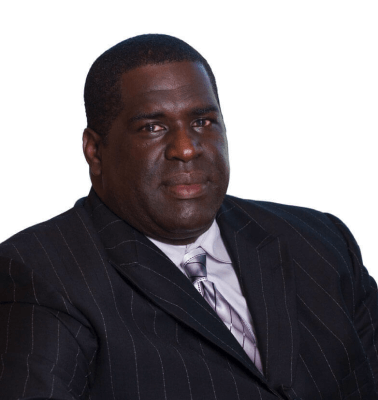Do not gamble with your future. Assault allegations can be devastating to you, your family and your career. Once an accusation is made it is critical that you have a knowledgeable expert on your side.
Summit Defense Attorneys’ legal team includes three former prosecutors, a former police officer and attorneys educated at the country’s top law schools. We fight assault and violent felony charges—often resulting in dismissal, acquittal or reduced charges.
Feel free to contact us at 800-929-0451 for a Free Case Review or schedule a consultation online.
ASSAULT – DEFINITIONS, DEFENSES AND ANALYSIS
Assault with a deadly weapon is an offense under Penal Code 245 in California. This section criminalizes assault with a deadly weapon, including firearms, and assault using force likely to cause serious injury.
A ‘deadly weapon’ is any object that can be used to cause death or great bodily injury. So, the law covers obvious weapons such as knives and guns, but also objects such as screwdrivers, broken bottles, and even cars, if they are used in a way that could cause serious injury or death. Further, even if no object or weapon is used, you can still be charged with the offense of assault with a deadly weapon if you use physical force against another person that is likely to cause great bodily injury.
Assault with a deadly weapon is more serious than ‘simple’ assault, which is reflected by the fact that the crime can be charged as either a felony or a misdemeanor – whereas simple assault is always a misdemeanor. An important thing to remember is that assault does not require proof that any injury was caused to the alleged victim. Rather, the crime of assault can be doing anything that merely might cause the alleged victim physical harm or unwanted touching. For example, threatening someone with a knife, even if they are not touched or harmed at all, would be an assault with a deadly weapon.
What if I go to court without a lawyer?
Having a lawyer is not only your right, but your best chance of fighting the case against you. Summit Defense Attorneys have handled many assault cases where we have been able to influence the process by presenting mitigating evidence to the DA to have charges dismissed or reduced, and we can help you at any stage of the process.
You should seek legal representation because these cases can have very serious repercussions. A charge of assault with a deadly weapon exposes you to the risks of a criminal record, large fines, and jail time. Further, if you are a non-citizen, you face the additional risk of being deported if convicted – which is why we have an expert immigration attorney on our team.
One recent case that we defended demonstrates why it is so important to have an attorney involved in your matter, and as early as possible. Our client, a young man, was involved in an ongoing dispute with one of his neighbors. There was a history of conflict between the two, and one night there was a particularly bad argument that resulted in the police being called. Our client was charged with assault with a deadly weapon, because the neighbor alleged that our client had threatened him while brandishing a pistol.
Once we were able to speak to him, our client explained that he had the gun because he was afraid of his neighbor. He told us about the long history of threats and abuse from the neighbor against himself and his wife. In fact, the neighbor had told our client that he owned several firearms, and wouldn’t hesitate to use them against our client. The neighbor often was in his backyard with his guns, cleaning them and playing around with them, in an effort to intimidate our client. Earlier on the day of this incident, our client had returned home to find what looked like bullet holes in the trash cans that had been left out the night before for collection. He assumed it was the neighbor, and when he confronted him about it, he laughed and did not deny it, but said, “you’re not much better than trash, you better watch out.” This argument then escalated, until the police were called and arrived on the scene.
It was apparent that this was a case of self-defense, so we immediately went to work on establishing that defense for our client. Our attorney:
- spoke to our client’s wife, other family members who had visited the home, and other neighbors, to collect evidence that corroborated our client’s story about the history with the neighbor;
- obtained copies of complaints filed in the past against the alleged victim at his previous address;
- made contact with the DA who was handling the matter;
- presented mitigating and character evidence to the DA, to demonstrate that our client was not a violent person; and
- told the DA about the problems they would have in their case – primarily, that we had compelling evidence of self-defense.
Due to our attorney’s work in presenting the evidence of a strong defense, and bringing the serious difficulties with the case to the attention of the DA, we were able to persuade them to drop the case before formal charges were filed against our client. This case demonstrates how much a skilled attorney can influence the process in your case, especially when involved at the pre-file stage.
What should I say to the police?
Nothing – you only have to tell them your name and address, and show some identification if requested. Other than that, it’s best to not say anything at all to the police – your lawyer will speak for you. If you are arrested, you or your family should contact Summit Defense Attorneys immediately – in an emergency, we’re available to help you 24 hours a day, 7 days a week.
If any kind of allegation is being made against you, you should never answer any questions from the police without first getting legal advice, and you should always have an attorney present when speaking to the authorities.
If you are arrested, the police are then required to tell you about your rights. These include your right to silence, and your right to a lawyer. These rights are important and you should take full advantage of them.
Being charged and going through the arrest process can be scary and intimidating, and it’s natural for you to want to defend or explain yourself. Keep in mind, though, that nothing you say at that point is likely to stop the police from charging you. Your best chance of presenting a good defense is by remaining silent and consulting a lawyer as soon as you can.
Summit Defense Attorneys defend many cases and it is almost never a good idea for a suspect to talk to the police – in fact, many people have hurt their cases by doing so. Remember, anything that is said, even in an informal conversation with the police, can be used as evidence against you.
SECTION B – ELEMENTS & DEFENSES
If I’m arrested, will I go to jail?
No, probably not – most criminal defendants are entitled to bail. In some cases, bail is not necessary and you can be released on your own recognizance. In other cases, bail will be required – and it may be set at a relatively high amount.
Once the charging process is complete at the police station, the amount for bail will be set in accordance with the schedule that is applicable in that county. The amount required to secure your bail will depend on the number and seriousness of the charges against you. Once it is paid, you will be free to leave the custody of the police. If you are not able to immediately secure your release, we will do everything to ensure that you are released on bail as soon as possible following an arrest. Summit Defense’s first priority will be to use every effort to keep you out of custody.
Is assault with a deadly weapon a felony or a misdemeanor?
In California, assault with a deadly weapon is a ‘wobbler’ – this means that it can be charged as either a felony or a misdemeanor. When filing charges, the Prosecutor will decide whether to file as a felony or a misdemeanor based on factors related to both the defendant and the alleged offense, such as:
- any criminal history of the defendant;
- the type of weapon or other object used to commit the offense; and
- whether any injury was actually inflicted, and how serious it was.
In many cases where we are involved in our client’s cases from the pre-file stage, we are able to present evidence and arguments that influence the Prosecutor’s decision. If, despite our best efforts, we are not able to completely prevent charges being filed, then we will always fight to have charges filed as misdemeanors – this is vital, because it limits our clients’ exposure to the most severe penalties.
What evidence will the Prosecutor use to try to prove a charge of assault with a deadly weapon?
Where you are facing a charge of assault with a deadly weapon, the Prosecutor must have evidence to prove the following elements beyond reasonable doubt:
- that you did an act with a deadly weapon/firearm that, by its nature, would directly and probably result in the application of force to a person; OR
that you did an act that, by its nature, would directly and probably result in the application of force to a person, and the force used was likely to produce great bodily injury;
- that you did the act willingly;
- that when you acted, you were aware of facts that would lead a reasonable person to realize that your act would directly and probably result in the application of force to someone;
- when you acted, you had the present ability to apply force to a person; and
- you did not act in self-defense or defense of another.
Deadly weapon
The Judicial Council of California Criminal Jury Instructions define a ‘deadly weapon’ as “any object, instrument, or weapon that is inherently deadly or one that is used in such a way that it is capable of causing and likely to cause death or great bodily injury.”[1] This is a very wide definition, and includes things such as knives and other weapons. But the Prosecutor can also suggest that any object was used as a deadly weapon – for example, a car driven purposely toward someone at speed, a broken glass that is wielded as a weapon in a bar fight, or a hot iron that is used as a weapon in a domestic argument.
Keep in mind, however, that if the object itself is not inherently deadly – such as an iron – the Prosecutor must prove beyond reasonable doubt that it was used in way that made it capable of causing or likely to cause death or great bodily injury.
Firearm
All kinds of guns are included in this definition – that is, any “device designed to be used as a weapon, from which a projectile is discharged or expelled through a barrel by the force of an explosion or other form of combustion.”[2] The law also specifically makes the use of certain firearms more serious. Those are semiautomatic pistols, machine guns, assault weapons, and .50 BMG rifles.
Directly and probably result in the application of force
To prove this offense, the Prosecutor does not need to prove that the defendant actually touched or injured anyone, or even that they intended to – just that the way in which they were acting probably would have resulted in the application of force if contact occurred. So, for example, if the Prosecutor is alleging that a defendant was waving a knife around in front of the alleged victim’s face, proof of that would satisfy this element.
The application of force simply means to touch someone in a harmful or offensive manner – they don’t actually have to be hurt. The law says that the “slightest touching can be enough if it is done in a rude or angry way. Making contact with another person, including through his or her clothing, is enough. The touching does not have to cause pain or injury of any kind.”[3]
Great bodily injury
The Prosecutor does not have to prove that the alleged victim was actually injured, but if they are accusing the defendant of assault by using force, then they have to prove that the force was such that it was likely to cause great bodily injury if contact occurred. The law defines great bodily injury as “significant or substantial physical injury. It is an injury that is greater than minor or moderate harm.”[4] So acts such as flicking someone, or a light slap, would probably not qualify as acts of force likely to cause great bodily injury under this section.
Willingly
The prosecution must prove that the defendant acted on purpose. This must not be confused, however, with proof that the defendant wanted to break the law or hurt someone – that is not required. But if the defendant’s actions were accidental or otherwise unintentional, then this element is not proved.
Were aware of facts that would lead a reasonable person to realize that your act would directly and probably result in the application of force to someone
This is a further element that is concerned with the defendant’s state of mind. However, this element also brings into play the concept of a ‘reasonable person’. So, even if the defendant wasn’t thinking about whether or not their actions would result in the application of force to someone, it doesn’t matter – the test that is used is whether a reasonable person would have.
Consider, for example, a case where a man sees a trespasser on his land. He yells at the person to go, but as the person is walking away, he also fires his gun two times in the general direction of the trespasser, to scare him. The man had no intention of hitting the person, and was not aiming for him at all – however, a reasonable person might conclude that there is a good chance of the person being injured as a result of the man’s actions. So, regardless of the fact that the man was not aiming for the trespasser, he could still be found guilty.
Had the present ability to apply force to a person
This element is concerned with the Prosecutor needing to prove that the threat was real and immediate. For example, it is not assault with a deadly weapon to say, “I’m going to get a knife from the kitchen and cut you” (although it might be a simple assault, or criminal threat) because the person making the threat does not have the knife at that time. Further, if someone does not have the physical ability to carry out their threat – either through some kind of physical restriction or disability – then this element could not be proved.
Did not act in self-defense or defense of another
If the defendant raises the issue of self-defense, or defense of another, then the Prosecutor must disprove it beyond reasonable doubt. We explain more about how the defense of self-defense operates in these kinds of cases in the section on Defenses, below.
What features could the Prosecutor use to prove that the offense is more serious?
There are some facts that, if the Prosecutor can prove them, will cause the offense to be considered more serious.
Firstly, if a firearm is used, the offense is still a ‘wobbler’, but a higher minimum jail time applies if the defendant is convicted. Further, if certain kinds of firearms are used – semiautomatic guns, machine guns, assault weapons, and .50 BMG rifles – then the offense will always be treated as a felony, and higher maximum prison terms apply.
Secondly, if the alleged victim is in a certain category of person, the offense is more serious. If the Prosecutor is alleging that the defendant assaulted a police officer or a firefighter engaged in their duties, for example, then the charge will always be filed as a felony, and the possible penalties increased.
What is the difference between assault and battery in California?
We very often hear the terms ‘assault’ and ‘battery’ used together, or interchangeably, but they are actually different offenses. In California, battery is an offense under Penal Code 242 – and any kind of battery offense requires proof of the infliction of actual violence or force on someone else. On the other hand, in any kind of assault offense, it is enough for the Prosecutor to prove that the defendant acted in a way which might have inflicted physical harm or unwanted touching on someone else – even if no contact was ever actually made with that person.
Related offenses
In cases where the defendant is accused of assault with a deadly weapon, other charges might also be considered, depending on the facts of the case. These can become relevant in two ways – firstly, the authorities will sometimes charge people with other offenses because they believe that more than one offense was committed. For example, if someone alleges that they were threatened with a knife, and also punched in the face, charges of both assault with a deadly weapon and battery might be filed.
Secondly, in situations where the case against the accused person for the assault with a deadly weapon charge is not particularly strong – for example, the prosecution may not have very strong evidence to prove that there was a deadly weapon used – then, depending on the circumstances of the case, the Prosecutor may file additional charges. In some cases where there is room for negotiation they may not be willing to drop the charges altogether but they may accept a plea to a lesser charge. In those kinds of situations, however, you need a lawyer from Summit Defense Attorneys to negotiate with the Prosecutor on your behalf – we are experts in this area of law, and we can often intervene on your behalf before charges are formally filed.
Assault
This is an offense under Penal Code 240, and is always filed as a misdemeanor. It is less serious than Penal Code 245 assault with a deadly weapon because there is no weapon, or serious degree of force, alleged.
Battery
This is a misdemeanor offense under Penal Code 242, and involves the accusation that the defendant used force or violence upon another. The more serious offense of aggravated battery is contained in Penal Code 243(d), and involves the infliction of serious bodily injury on the victim. That offense is always treated as a felony.
Brandishing a weapon or firearm
Under Penal Code 417, it is an offense to exhibit or use (“brandish”) a firearm or deadly weapon in a rude, angry, or threatening way. This is a misdemeanor offense in most circumstances, and less serious than assault with a deadly weapon.
What defenses can I use to fight a charge of assault with a deadly weapon?
I didn’t do it!
Maybe the alleged victim has falsely accused you, maybe you didn’t touch or threaten the alleged victim at all, or maybe the police have incorrectly targeted you in their investigation – whatever the case, we will work to clear your name.
Because this offense does not require the victim be injured, or even touched, it is especially easy for someone to make a false accusation. Summit Defense Attorneys know from experience that victims do lie, and that innocent people have been falsely accused or wrongly convicted as a result. This can happen for many reasons – some people lie to protect themselves or another person, or falsely accuse someone out of anger or a desire for revenge.
I didn’t use a deadly weapon/force!
This offense requires proof that the defendant used a deadly weapon, or that they used force likely to cause great bodily injury. In many cases, the Prosecutor is unable to prove this element of the offense – for example, they may not be able to convince the jury that the way the object was used, or the degree of force used, was serious enough that it was likely to cause great bodily injury.
Consider, for example, a case where a man is charged with assault and using a pool cue as a ‘deadly weapon’. A pool cue is not ‘inherently deadly’, so the Prosecutor would have to prove that the man used the pool cue in such a way that it was capable of causing, and likely to cause, death or great bodily injury. That would depend on exactly what the man did with the pool cue, all of the surrounding circumstances, and whether he was wielding it as a ‘weapon’ at all.
I was acting in self-defense/defense of another person!
Summit Defense has defended many cases where our client acted in self-defense. Often, though, that defensive action is not immediately apparent to the police, or the true aggressor lies or misleads the police. If you have been charged with an offense but were actually acting in self-defense, it is important that you have a lawyer who is experienced in raising this defense on your side. We will immediately act to collect and preserve evidence to establish your defense, as well as point out the deficiencies in the case to the DA.
If the defendant claims that they were acting in self-defense, or defense of another, the Prosecutor must prove beyond reasonable doubt that they were not. As set out in the Judicial Council of California Criminal Jury Instructions, the law provides that a defendant acted in lawful self-defense if:
- The defendant reasonably believed that they were in imminent danger of suffering bodily injury or of being touched unlawfully;
- The defendant reasonably believed that the immediate use of force was necessary to defend against that danger; and
- The defendant used no more force than was reasonably necessary to defend against that danger.[5]
In deciding whether the defendant’s belief that they were in imminent danger was reasonable, the court must look at all of the circumstances. In many assault cases, it is important to remember that a history of threats or violence – either towards the defendant, or to others – can also be taken into account when assessing whether the defendant responded reasonably. Further, the law does not require defendants to retreat – they can stand their ground and defend themselves. So, consider a man who works in a bar who is attacked in a bar fight, and defends himself by threatening someone with a kitchen knife that is kept behind the bar – he would likely have a valid defense of self-defense.
In the end, once the defense has been raised, the prosecution has the burden of proving beyond reasonable doubt that the defendant did not act in lawful self-defense. Otherwise, the defendant must be found not guilty of the offense.
I didn’t act willfully – it was an accident!
One element of this offense is that the defendant acted willfully – in other words, if the defendant’s actions were accidental or unintentional, then the Prosecutor cannot prove the offense. In some cases, the alleged victim might have misinterpreted the defendant’s actions. For example, consider a couple having a fight while the wife is preparing dinner. While cutting up some vegetables, she turns around and yells at her husband, while still holding the knife in her hand. In that case, if she was not wielding or holding the knife in any kind of threatening way, but simply holding it in her hand before turning back around and continuing to cut the vegetables, she is not guilty of assault with a deadly weapon.
Insufficient evidence and reasonable doubt
In every criminal case, the prosecution must prove all elements of the charge beyond reasonable doubt. However, a lack of evidence does not always stop charges being filed. In these cases, where no actual injury is required, it can be especially easy for charges to be filed without sufficient proof, and based only on the word of the alleged victim against the accused.
Our attorneys include ex-police officers and an ex- District Attorney – this experience on the other side means that we know how common it is for charges to be pursued where evidence is weak, or where the case is built only on the word of the alleged victim against the word of the accused. But a Summit Defense attorney will always insist that the prosecution meet their burden of proving any charge beyond reasonable doubt, and will not let baseless charges stand.
A lack of evidence, or a lack of evidence strong enough to support a charge beyond reasonable doubt, is one of the most common defenses relied upon. If the evidence that the Prosecutor is relying upon in your case is not adequate, Summit Defense Attorneys will challenge the prosecution case and make sure that you are not unjustly convicted.
In one case that we defended, our client was charged in relation to a fight with another man in a bar. Our client was accused of using a screwdriver to assault the other man during the fight. Our client maintained, however, that it was the other man who produced the screwdriver during the fight, and threatened him with it, before he managed to wrest it from him. This case went to trial, and Summit Defense made sure that the jury got the full story. We brought important evidence to the forefront, to show the jury that the Prosecutor’s case was lacking, including:
- that the screwdriver had the fingerprints of both men on it;
- that the other man carried a tool kit in his trunk;
- that no witness in the bar could be sure who they first saw with the screwdriver during the fight;
- that several witnesses agreed that our client was seen trying to get the screwdriver out of the other man’s hands;
- that our client had no history of violence; and
- that our client was injured more seriously in the fight.
In all of the circumstances, the Prosecutor was simply to not able to prove beyond reasonable doubt that our client was the aggressor, and he certainly could not prove that our client produced the screwdriver and used it to assault the other man in the fight. After a very short period of deliberation, the jury acquitted our client of all charges in this case.
SECTION C – PENALTIES
What are the penalties for assault with a deadly weapon?
The penalties in assault cases vary widely, and will always depend on the kind of offense charged and the exact circumstances of the offense. Whether or not the defendant has a criminal history, or a history of previous violence offenses, will also affect the severity of the penalty imposed.
Of course, penalties are only of concern if a defendant is actually convicted of an offense. At Summit Defense, our aim in every case is always the complete dismissal of all charges and we will do everything possible to avoid a conviction in your case. However, in cases where a conviction cannot be avoided, Summit Defense Attorneys will fight to minimize consequences. In many cases we can do things like:
- Get charges reduced to lesser offense/s;
- Achieve a sentence of a short probation period;
- Seek counseling and jail alternatives; and
- Enroll our clients in diversion programs.
If, despite our best efforts, you are convicted of assault with a deadly weapon, the penalties will differ depending on whether the charge was filed as a misdemeanor or a felony. As a misdemeanor, without a firearm, the maximum penalties include:
- summary probation;
- one year in country jail;
- a fine of up to $1,000; or
- both a fine and jail time.
If a firearm was used, but the charge was still filed as a misdemeanor, then there is a minimum sentence of six months in county jail.
As a felony, but without the use of a firearm, the maximum penalties include:
- felony probation;
- 2, 3, or 4 years in state prison;
- a fine of up to $10,000; or
- both a fine and imprisonment.
If the offense involves the use of a semiautomatic firearm, a machine gun, an assault weapon, or a .50 BMG rifle, then the charge will always be filed as a felony. In the case of semiautomatic guns, the maximum penalties increase to 3, 6, or 9 years in state prison. In the case of machine guns, assault weapons, or .50 BMG rifles, the maximum penalties increase to 4, 8, or 12 years in state prison.
Finally, if the victim of the offense was a peace officer or firefighter engaged in the performance of their duties, and the defendant knew that (or reasonably should have known)[6], the charge is always filed as a felony, and the penalties also increase. If no firearm was used, the maximum penalties are 3, 4, or 5 years in state prison. If a firearm was used, the penalties range from 4 to 12 years in state prison, depending on the kind of firearm that was used.
Keep in mind that all of these penalties are the maximum possible sentences. In every case, the judge will consider many factors before passing sentence. This includes the nature of the offense itself and any criminal history, and the specific circumstances of each case. Some of the things that the judge will consider are known as aggravating and mitigating circumstances – these are factors that might either increase (aggravate) or decrease (mitigate) the eventual sentence.
There are some common factors that can occur in assault cases – for example, if alcohol or drug use was associated with the offense, and you voluntarily enter into a treatment program, then your attorney may persuade the judge to take that into account as a mitigating circumstance. On the other hand, if the offense was random and unprovoked, that might be considered an aggravating circumstance. However, every case is different and every defendant is unique – an experienced Summit Defense attorney will best know how to put together a positive case on sentencing that brings together as many mitigating circumstances as possible, and reduces the negative effect of any aggravating circumstances.
What other consequences can occur as a result of being convicted of assault with a deadly weapon?
Besides the possible penalties of imprisonment, fines, and probation, an assault conviction exposes a defendant to other serious consequences. These can include a permanent criminal record, issues with your immigration status, and being forced to give up or sell your guns. This is one important reason why the first goal of Summit Defense Attorneys, in any case, is the full dismissal of all charges.
Immigration status jeopardized
A conviction for an assault offense – as a violent offense – can have particularly serious consequences for non-citizens, including the threat of deportation. We know that a conviction can have tragic consequences – jobs can be lost, families can be ripped apart, and people lose their opportunity to remain in the US.
If you are a non-citizen, on a visa, or hoping to apply for a Green Card, then you need Summit Defense – we are the only criminal defense firm in the Bay Area with a specialized immigration attorney on our team , which means we are able to provide our non-citizen clients with the best representation by taking into account all of their needs.
Give up or sell your guns
In California, many misdemeanor convictions, and all felony convictions, will result in some form of ban on gun ownership. This may require you to sell your guns and provide proof of that sale to the police, or hand your guns over to the police to keep until the order ends. In many cases, you will not be allowed to own a gun ever again.
This is fairly complex area of law, because both Federal and state laws apply – and, where Federal and California laws conflict, the Federal law must be followed. Further, the courts have held that these bans do not violate the Second Amendment right to bear arms. If you are concerned about the preservation of your gun ownership rights, you should consult an attorney as soon as you are accused of any kind of criminal offense – especially offenses involving violence, or the use of firearms.
[1] Judicial Council of California Criminal Jury Instructions, Instruction 875.
[2] Judicial Council of California Criminal Jury Instructions, Instruction 875.
[3] Judicial Council of California Criminal Jury Instructions, Instruction 875.
[4] Judicial Council of California Criminal Jury Instructions, Instruction 875.
[5] Judicial Council of California Criminal Jury Instructions, Instruction 3470.
[6] California Penal Code 245.













